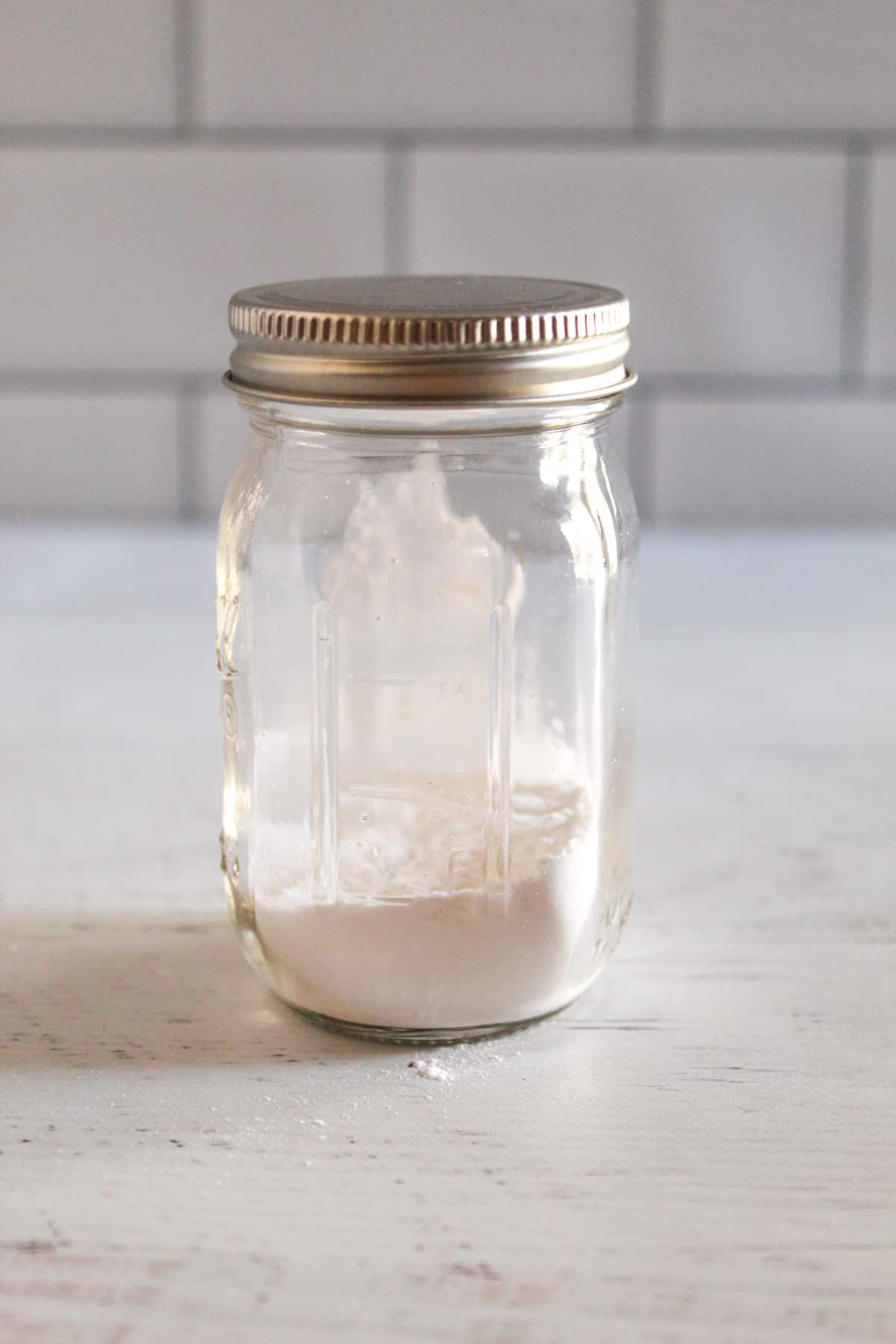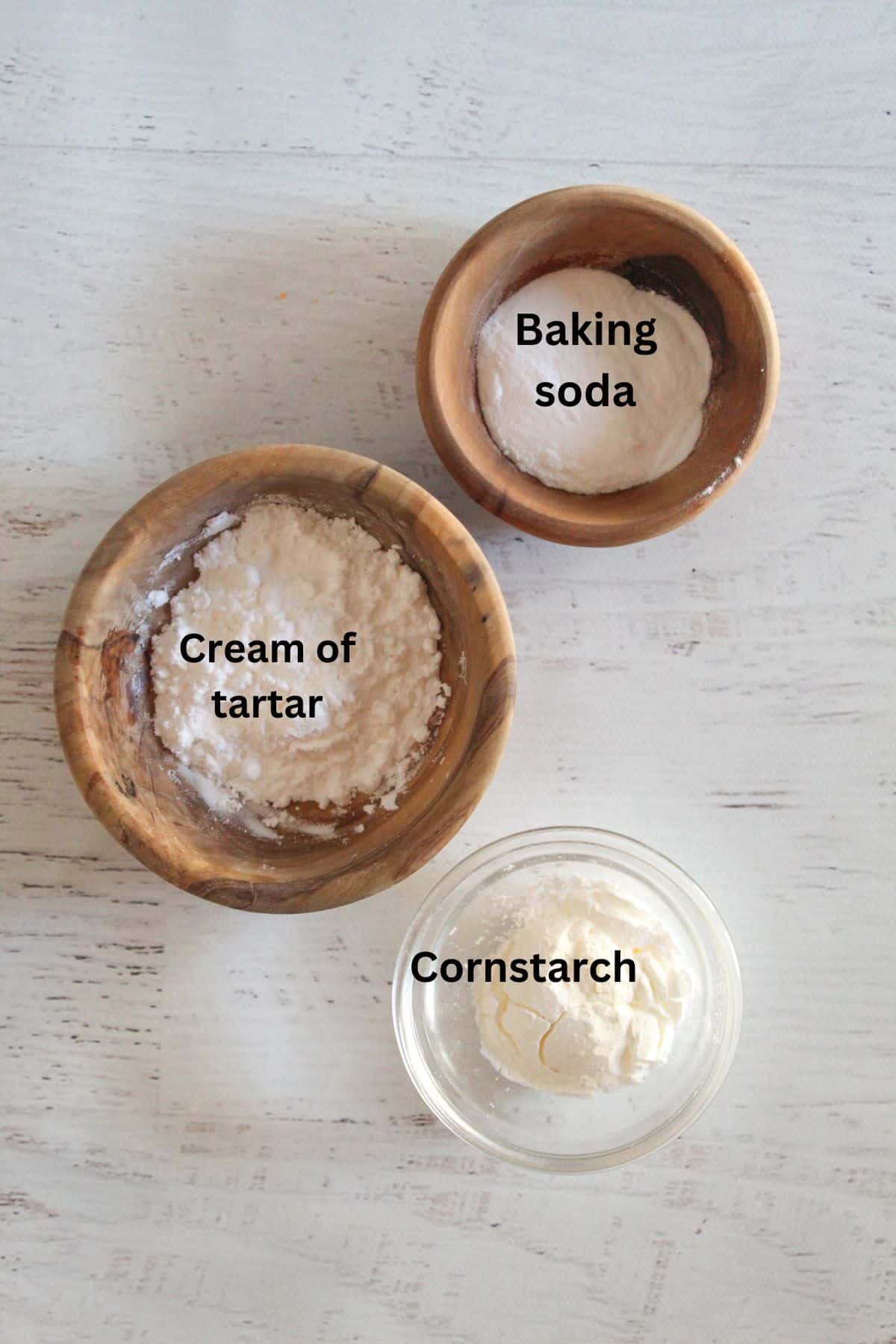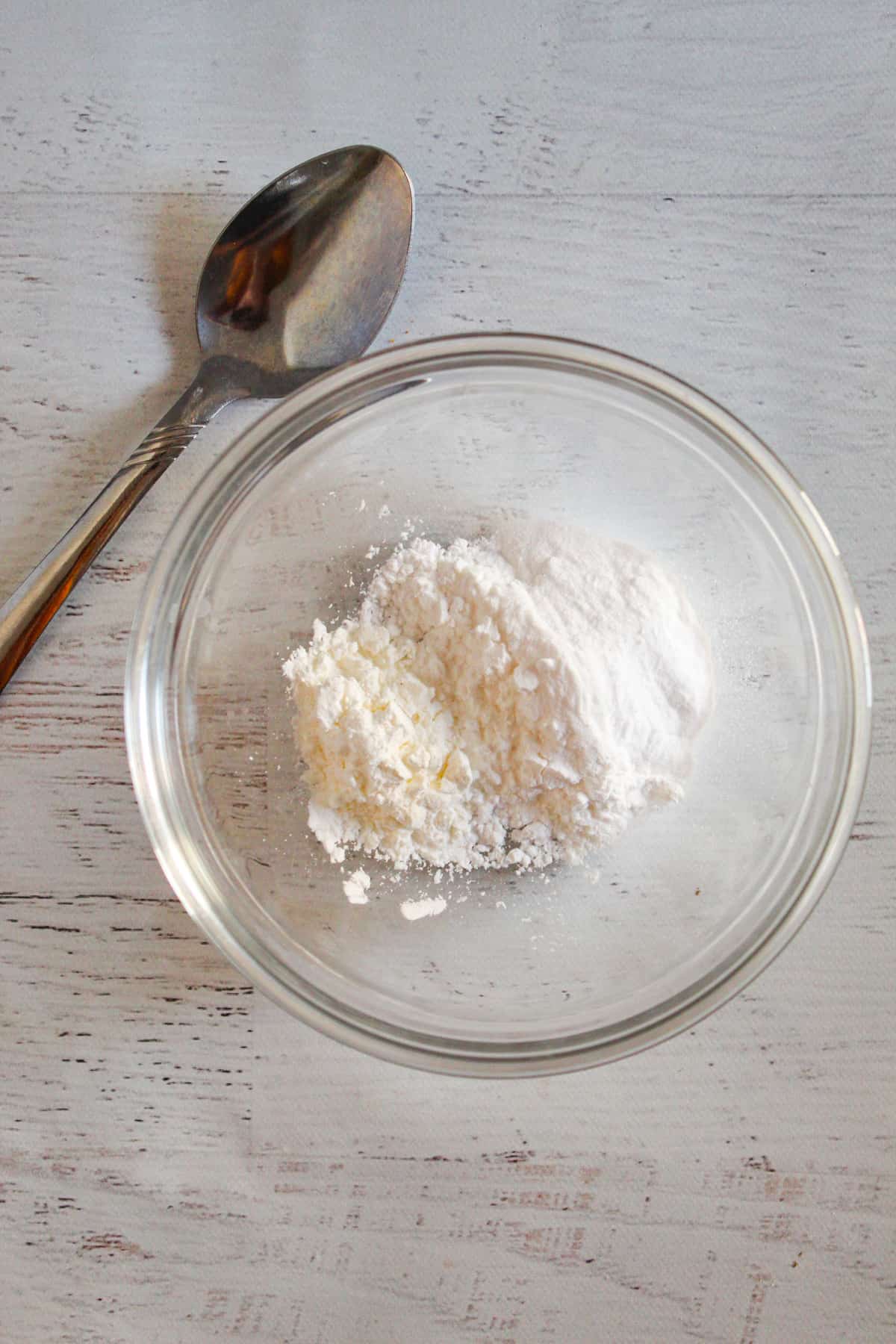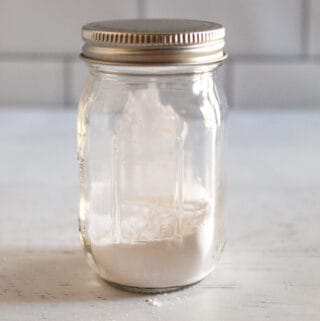Using a leaving agent like baking powder is crucial in baking. Baking powder is responsible for getting a baked good to rise properly. If you’ve ever done even the smallest amount of baking, you’ve probably used baking powder. But what exactly is baking powder, and is it gluten-free?

I’ll tell you right up front that yes, baking powder itself is gluten free! But you should always buy a brand that is certified gluten free, and I’ll explain why! In this post, we’ll go over all things baking powder: what it is, what’s in it, the top brands to look for, and how to make your own homemade gluten free baking powder!
Jump to:
What is baking powder?
Baking powder is a leavening agent that helps breads, cakes, and other baked goods rise. If you want to achieve that fluffy texture, you need to use a leavening agent. Baking powder is very commonly used in baking, so chances are you have it in your kitchen and have used it! It works by reacting to moisture and creating carbon dioxide (bubbles), which causes breads, cakes, muffins, and other baked goods to rise and have volume. Without baking powder or another leavening agent, you’d end up with something dense and flat.
Ingredients in baking powder

So, what is baking powder actually made of? It contains just three ingredients: baking soda (sodium bicarbonate), an acid (sodium aluminum sulfate or cream of tartar), and a starch (usually cornstarch or potato starch). Although uncommon, some brands may use wheat starch in their baking powder, which makes these brands of baking powder not gluten free. That’s why it’s so important to pay close attention to the ingredient list!
Does baking powder contain gluten?
Nope! Although baking powder doesn’t contain any gluten in itself, it’s essential to buy a brand of baking powder that specifically says it’s certified gluten free. This is because there’s a possibility of cross-contamination with some baking powders that are made with ingredients processed in the same facilities as gluten-containing products. So I highly recommend checking the ingredient list and the language on the baking powder’s label!
Single-acting versus double-acting
The two types of baking powder are single-acting and double-acting. Most baking powders you’ll find are double-acting. If you check what kind of baking powder you have in your kitchen, it’s probably the double-acting kind. This just means that the baking powder reacts twice: once when exposed to moisture (the liquids in your batter or dough) and another time when exposed to heat (the oven).
On the other hand, single-acting baking powder reacts once when exposed to moisture. This kind of baking powder will make your dough rise as soon as it comes into contact with your wet ingredients. When you’re using single-acting baking powder, make sure you bake the item right after you mix everything together (while the bubbles from the reaction are still there).
Gluten free baking powder brands
Fortunately, there are many brands of gluten free baking powder to choose from. Here are several great options to add to your gluten free baking supplies:
- Clabber Girl
- Bob’s Red Mill
- Argo
- Rumford
- I’m Free
How to make baking powder
If you’re not interested in purchasing gluten free baking powder, you can always make your own! Here’s how you can make homemade baking powder with just a few ingredients:

First, add ingredients to a small bowl. Mix with a spoon until completely combined.

Use baking powder as directed in the recipe or store it in a well sealed container (refrigerate for best results).
How to test baking powder
Before using any baking powder, but particularly the DIY baking powder, it’s a good idea to test to see if it’s still good. Test it by adding ½ teaspoon of the baking powder to ¼ cup of hot water. If it fizzes, it’s fine to use, if not, then it is no longer fresh.
Baking powder FAQ
Mostly yes! But make sure to find one that is certified gluten free because there are some that use wheat starch and some that may be cross-contaminated.
Yes, it works exactly the same! The only difference is that none of the ingredients contain gluten and certified gluten free baking powder is processed in a facility with no risk of cross-contamination with any gluten-containing products.
Baking soda is sodium bicarbonate, which reacts to acid by creating carbon dioxide. Baking powder is a mixture of baking soda, an acid (like cream of tartar), and a starch (like cornstarch). Baking powder reacts to moisture and heat.
Baking powder contains baking soda (which is sodium bicarbonate), acid (cream of tartar or sodium aluminum sulfate), and starch (usually cornstarch or potato starch).
Recipe

How to Make Baking Powder
Can’t get to the store for baking powder? Or want to make sure yours is indeed gluten free baking powder? It’s easy to make your own at home!
Servings: 1 Tablespoon
Calories: 23kcal
Instructions
-
In a small bowl, add cornstarch, baking soda and cream of tartar. Whisk until fully combined.
-
Mixture is ready to use immediately.
Notes
- Store homemade baking powder in a glass jar or storage container.
- Storing it in the refrigerator is best.
- Check for activeness by adding ½ teaspoon to ¼ cup hot water. If it fizzes, it’s fine to use, if not, then it is no longer fresh.
- DIY baking powder is similar to single acting baking powder and will need to be baked immediately. Keep this in mind as most gluten free batters need a rest time before baking.
Nutrition
Calories: 23kcal | Carbohydrates: 6g | Protein: 0.01g | Sodium: 1098mg | Potassium: 990mg | Fiber: 0.03g | Calcium: 1mg | Iron: 0.2mg



